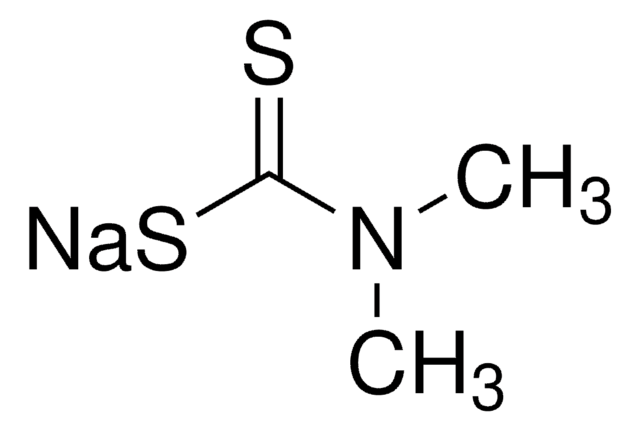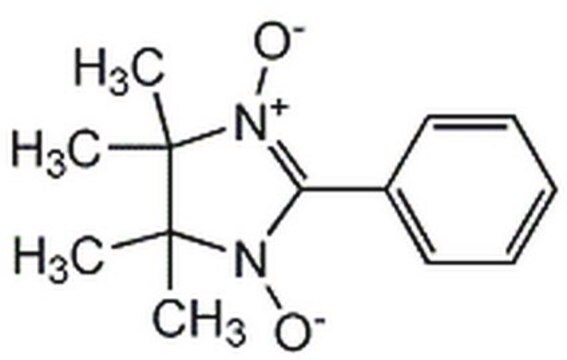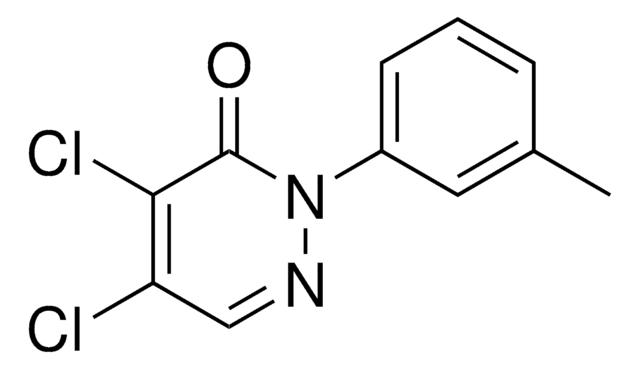D3506
Sodium diethyldithiocarbamate trihydrate
Synonym(s):
Cupral, Diethyldithiocarbamic acid sodium salt
About This Item
Recommended Products
vapor density
5.9 (vs air)
Quality Level
assay
≥97% (perchloric acid titration)
form
powder or crystals
mp
95-98.5 °C (lit.)
solubility
water: 1 g/10 mL, slightly hazy
storage temp.
room temp
SMILES string
[H]O[H].[H]O[H].[H]O[H].CCN(CC)C(=S)S[Na]
InChI
1S/C5H11NS2.Na.3H2O/c1-3-6(4-2)5(7)8;;;;/h3-4H2,1-2H3,(H,7,8);;3*1H2/q;+1;;;/p-1
InChI key
WWGXHTXOZKVJDN-UHFFFAOYSA-M
Looking for similar products? Visit Product Comparison Guide
Application
Biochem/physiol Actions
Features and Benefits
Caution
signalword
Danger
hcodes
Hazard Classifications
Acute Tox. 4 Oral - Eye Dam. 1 - Skin Irrit. 2
Storage Class
11 - Combustible Solids
wgk_germany
WGK 3
flash_point_f
Not applicable
flash_point_c
Not applicable
ppe
dust mask type N95 (US), Eyeshields, Gloves
Certificates of Analysis (COA)
Search for Certificates of Analysis (COA) by entering the products Lot/Batch Number. Lot and Batch Numbers can be found on a product’s label following the words ‘Lot’ or ‘Batch’.
Already Own This Product?
Find documentation for the products that you have recently purchased in the Document Library.
Customers Also Viewed
Related Content
Discover Bioactive Small Molecules for ADME/Tox
Our team of scientists has experience in all areas of research including Life Science, Material Science, Chemical Synthesis, Chromatography, Analytical and many others.
Contact Technical Service










